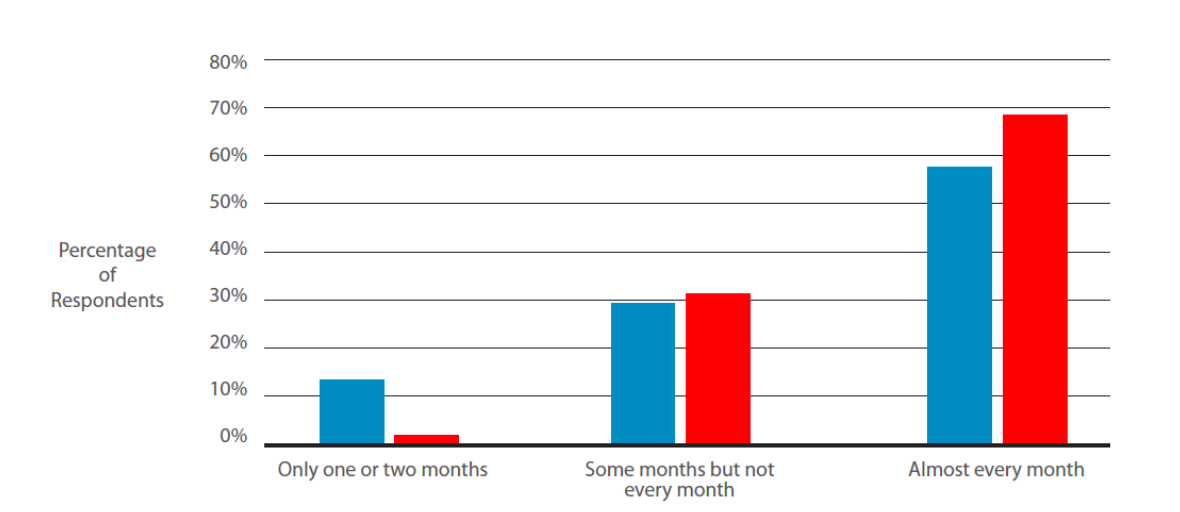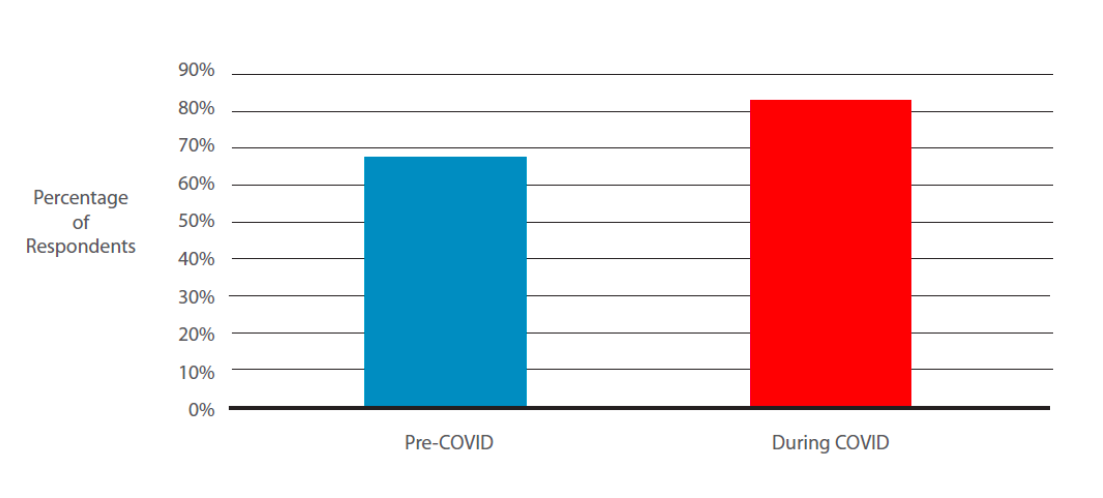Daily Bread Food Bank has released a new report entitled, Hunger Lives Here: Risks and Challenges Faced by Food Bank Clients During COVID-19. This only research of its kind in Canada, report reveals that COVID-19 has led to an increased reliance on food banks in Toronto. The number of new clients accessing food banks has tripled since a public emergency was declared in Ontario, while returning clients are visiting food banks more often. For many, this is not enough: two of three clients surveyed now go a full day without eating almost every month.
FREQUENCY OF GOING A WHOLE DAY WITHOUT FOOD

COVID-19 has followed paths of inequity already entrenched in our society and has highlighted the vulnerabilities many food bank clients face daily. More than half the food bank clients who participated in our survey reported increased risk to severe illness from COVID-19 due to underlying health conditions and/or older age. The vulnerability of these food bank clients to severe illness from COVID-19 is nearly double that faced by the Canadian population as a whole.
Financial vulnerability has been exacerbated during this crisis. Among survey respondents, 80% are spending more than half their income on rent and are therefore considered to be in deep core housing need. This number spiked during the pandemic due to lost jobs and reduced hours.
RESPONDENTS PAYING 50% OR MORE OF INCOME ON RENT

While a province-wide evictions freeze has helped during this crisis, food bank clients know this protection is only temporary. Two out of every five respondents are worried they will face eviction in the coming months.
Financial supports from all levels of government have helped millions of Canadians during COVID-19. However, they have not prevented a significant increase in food bank use. Many respondents reported receiving benefits yet still face food insecurity while others fell through gaps in our social safety net.
As we reopen our economy, we must remember that people are still facing an emergency and require ongoing emergency action taken by the government. As we recover, we must build a new normal where government policies tackle societal inequities to build thriving, inclusive communities.
We recommend that government prioritize the following areas:
For the complete findings and recommendations, read the report here.